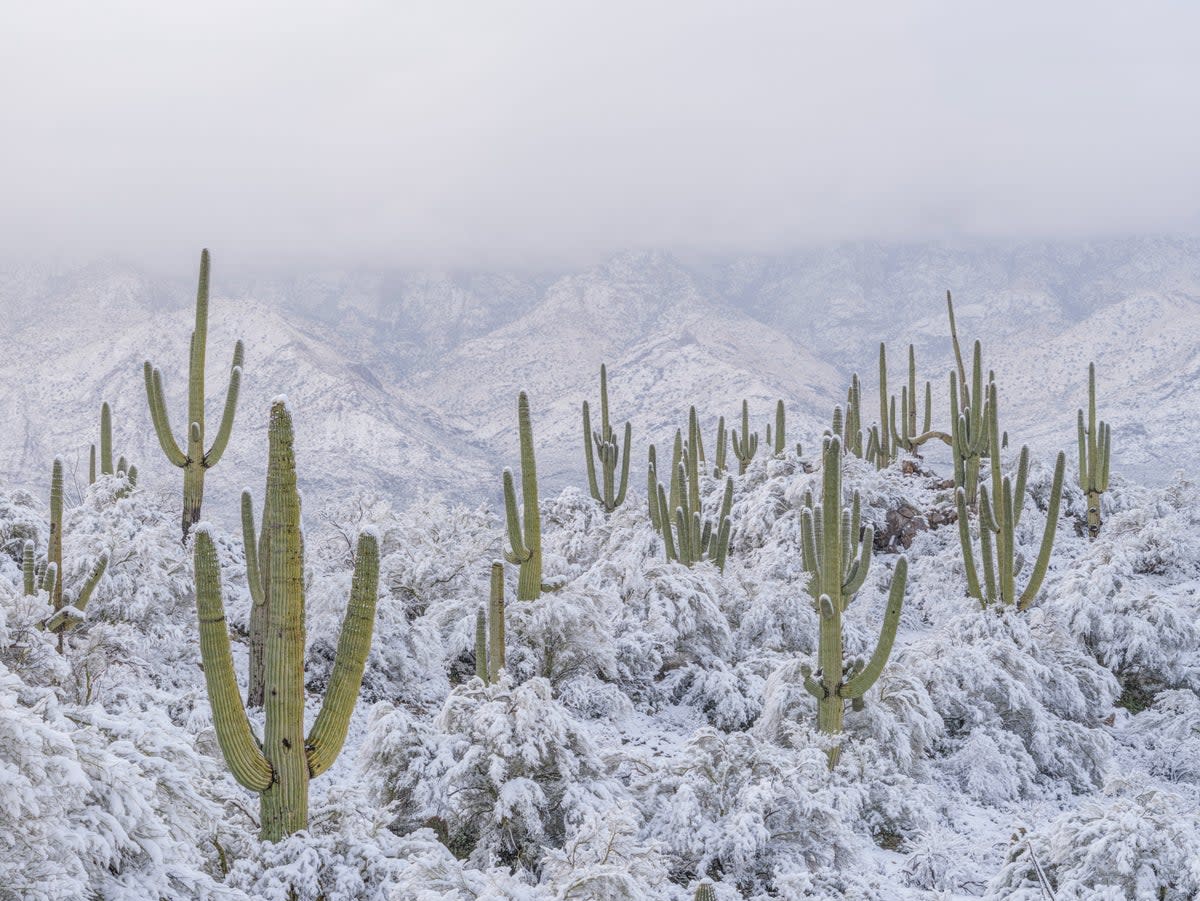Stunning photograph shows first snowfall in a decade in North America’s hottest desert

A short-lived but welcome snowfall in North America’s hottest desert was captured on camera earlier this month.
For four hours part of the Sonoran Desert, which spans 100,000 square miles across Mexico’s Sonora, Baja California, and Baja California Sur states, and the US states of Arizona and California, saw two to four inches of snowfall.
The picture of snow blanketing cacti was shot on 2nd March by Pulitzer-Prize-winning landscape photographer Jack Dykinga.
Mr Dykinga, who has been photographing the Sonoran Desert since 1976, said that snow hadn’t fallen in the area in a decade. He added that the scenes were “pure magic, seemingly out of place and strikingly beautiful”.Â
One meteorologist described it as “once-in-a-generation” snowfall.
The flurries may have been partly linked to the final stages of a La Niña climate pattern, the cool phase of the El Niño-Southern Oscillation (ENSO), which scientists say ended on 9th March.
In addition to the La Niña, Bianca Feldkircher, a National Weather Service meteorologist, told The Associated Press that a persistent blocking pattern over the Pacific, plus cold air migrating south from the Arctic, created conditions for widespread snowfall along the West Coast.
The western US has seen huge amounts of snowfall this winter. More than 11ft has fallen in Flagstaff, in northern Arizona, the greatest accumulation in more than 70 years. In California, there has been a record 40ft of snow.
While the Sonoran desert sees extremely high temperatures - with summer routinely topping 100 degrees Fahrenheit (40 degrees Celsius) and climbing to a boiling 118F (48C) - in winter, temperatures drop.
The climate remains mostly mild in the valleys but dense snow cover is typical at high elevations in mountain areas, the National Park Service states.


